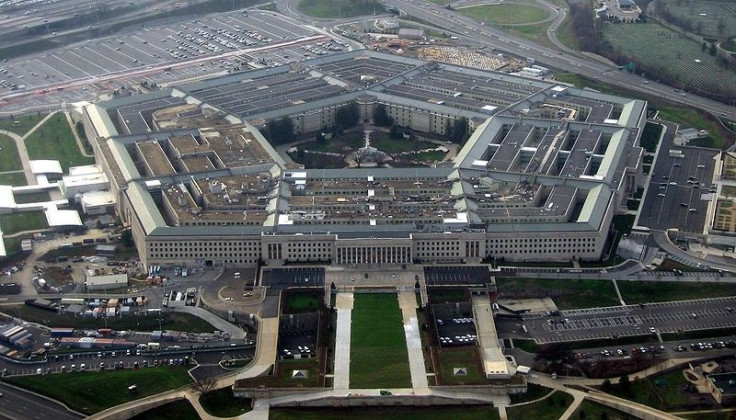Romney Foreign Policy: A 'Replay Of The Bush Administration'?

Mitt Romney's bellicose foreign policy rhetoric is already making him some enemies.
The chairman of the international affairs committee of Russia's State Duma, the country's parliament, said recently that Romney's policies -- the presumptive Republican nominee infamously called Russia America's No. 1 geopolitical foe -- could lead to a full-scale crisis. Alekey Pushkov said he was concerned that Romney could surround himself with the types of neoconservatives who shaped the Bush administration's confrontational approach.
We don't think that for us Romney will be an easy partner, Pushkov said. We think that Romney will be, on the rhetorical side, a replay of the Bush administration.
There is some merit in the comment. Romney has adopted an aggressive foreign policy, contrasting his views with what he calls President Obama's overly conciliatory approach. Obama is America's most feckless president since Carter, Romney wrote in a March op-ed, and Romney regularly casts Obama as someone who is more willing to placate other nations than advance American interests.
On several of the foreign conflicts facing the United States, Romney has advocated a path that is closer to the Bush administration, which disdained diplomacy in favor of unilateral action. Here is a sampling.
Russia
Romney described Russia as America's leading rival, while critiquing Obama's promise to then-President Dmitri Medvedev of Russia, caught on microphone without knowing, that he would have more flexibility to work with Russia if he gained a second term. The comment implies a hidden agenda of accommodating America's foes, Romney said.
Russia, Romney said in an interview with Wolf Blitzer, always stands up for the world's worst actors. He cited Russia's support for Iran and its veto of a United Nations Security Council resolution that would have called for embattled Syrian president Bashar al-Assad to cede power.
Obama began his term by pursuing a reset in U.S.-Russian relations, a detente that produced an agreement to reduce both countries' nuclear stockpiles and led Obama to scrap plans to build a missile defense shield in Poland and the Czech Republic. The thaw has frozen over again of late, but Romney believes Obama erred in initially trying to forge a closer alliance with Russia.
The agreement that the president put in place with regards to nuclear weapons is one which I find very, very troubling already, Romney told Blitzer. The decision to withdraw our missile defense sites from Poland put us in greater jeopardy, in my view.
Syria
It is true that Russia has resolutely supported Syria even as Assad has stepped up the bloodshed engulfing his country. Syria is one of Russia's last close allies in the Middle East, and Moscow is reluctant to abandon an ally with whom it still holds lucrative arms contracts. President Vladimir Putin was also infuriated when the NATO mission in Libya, allowed in part because Russia abstained from blocking the operation at the U.N. Security Council, morphed from its stated goal of protecting civilians to an effort to topple dictator Muammar Gaddafi.
Despite a diplomatic stalemate in Syria, the Obama administration has resisted calls to escalate the situation. The United States is reportedly furnishing the rebels with communications equipment, and The New York Times reported that the Central Intelligence Agency is helping allies in Turkey vet the Syrian dissidents to decide which groups to help. But Obama's generals have warned against intervening or arming the rebels outright, a wariness that Congress generally shares.
Romney aligned himself with a trio of Republican senators, led by John McCain of Arizona, who have pushed the administration to arm the Syrian rebels. Criticizing a policy of paralysis that has watched Assad slaughter 10,000 individuals, Romney said in late May that the administration needed to act.
We should increase pressure on Russia to cease selling arms to the Syrian government and to end its obstruction at the United Nations, Romney wrote in a statement. And we should work with partners to arm the opposition so they can defend themselves.
Iran
Romney's criticisms of how Obama has handled Iran are often disingenuous. He has accused Obama of failing to put in place crippling sanctions against Iran while tough sanctions squeeze Iran's economy, and has said the president has not put a military option on the table, while Obama has always held that a military strike is possible.
Still, Obama has opted for an approach of tightening sanctions in an effort to force the Iranians to the negotiating table. He has warned against saber-rattling and said a military strike would be a last resort. The upshot, Romney says, is that a second Obama term would be disastrous.
If Barack Obama gets re-elected, Iran will have a nuclear weapon and the world will change, Romney said in March.
A President Romney would have less hesitation about attacking Iran's nuclear facilities. In response to a question about a recent Weekly Standard article urging Obama to seek congressional authorization for such an operation, Romney said he would be empowered to strike Iran without Congress' consent.
I can assure you that if I am president, the Iranians will have no question but that I would be willing to take military action, if necessary, to prevent them from becoming a nuclear threat to the world, Romney said on Face the Nation. I don't believe at this stage, therefore, if I'm President, that we need to have war powers approval or a special authorization for military force. The President has that capacity now.
© Copyright IBTimes 2024. All rights reserved.





















